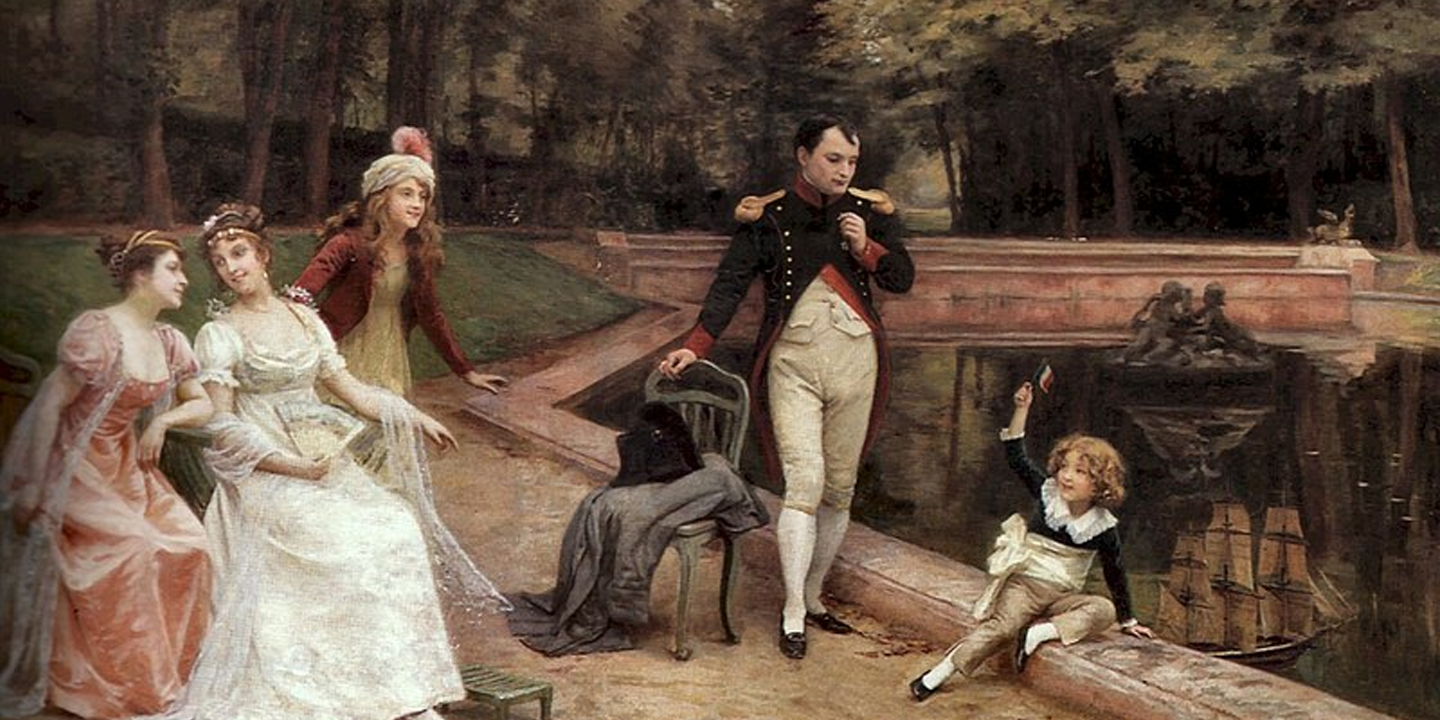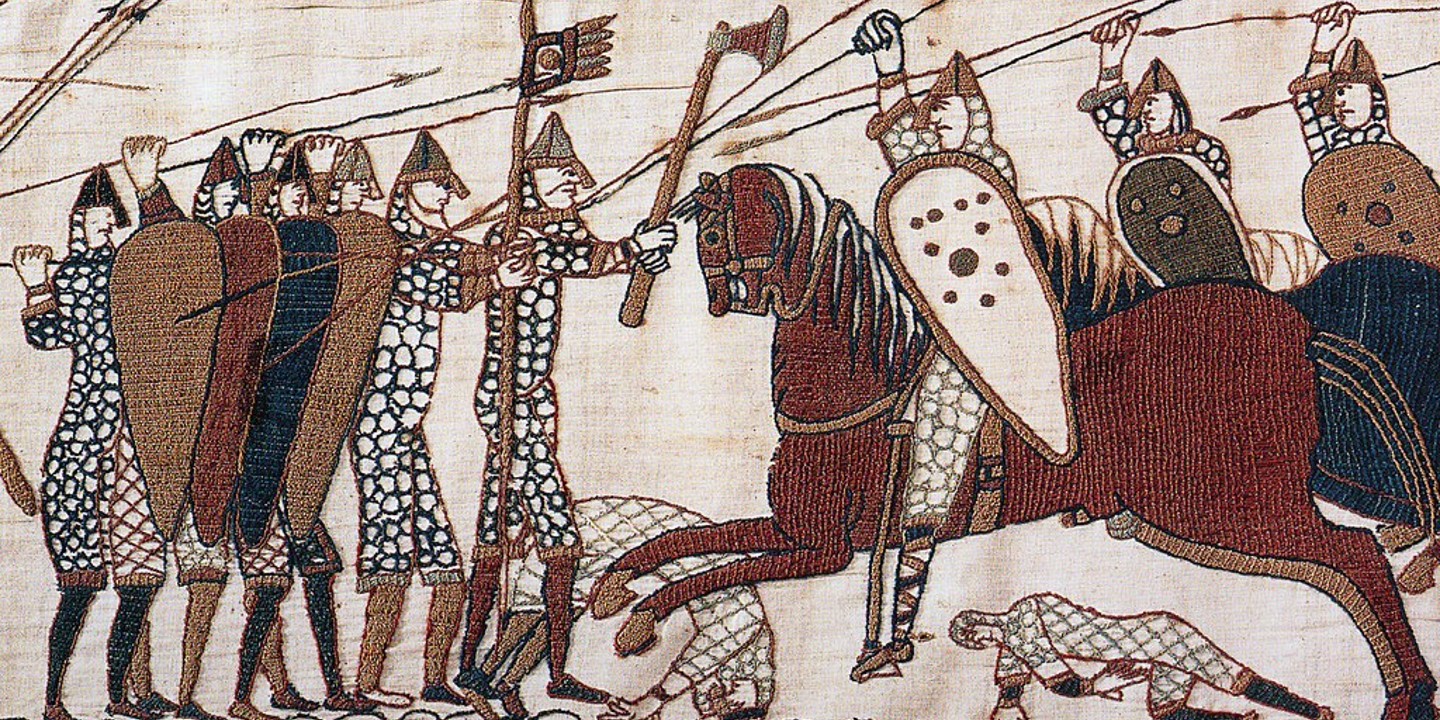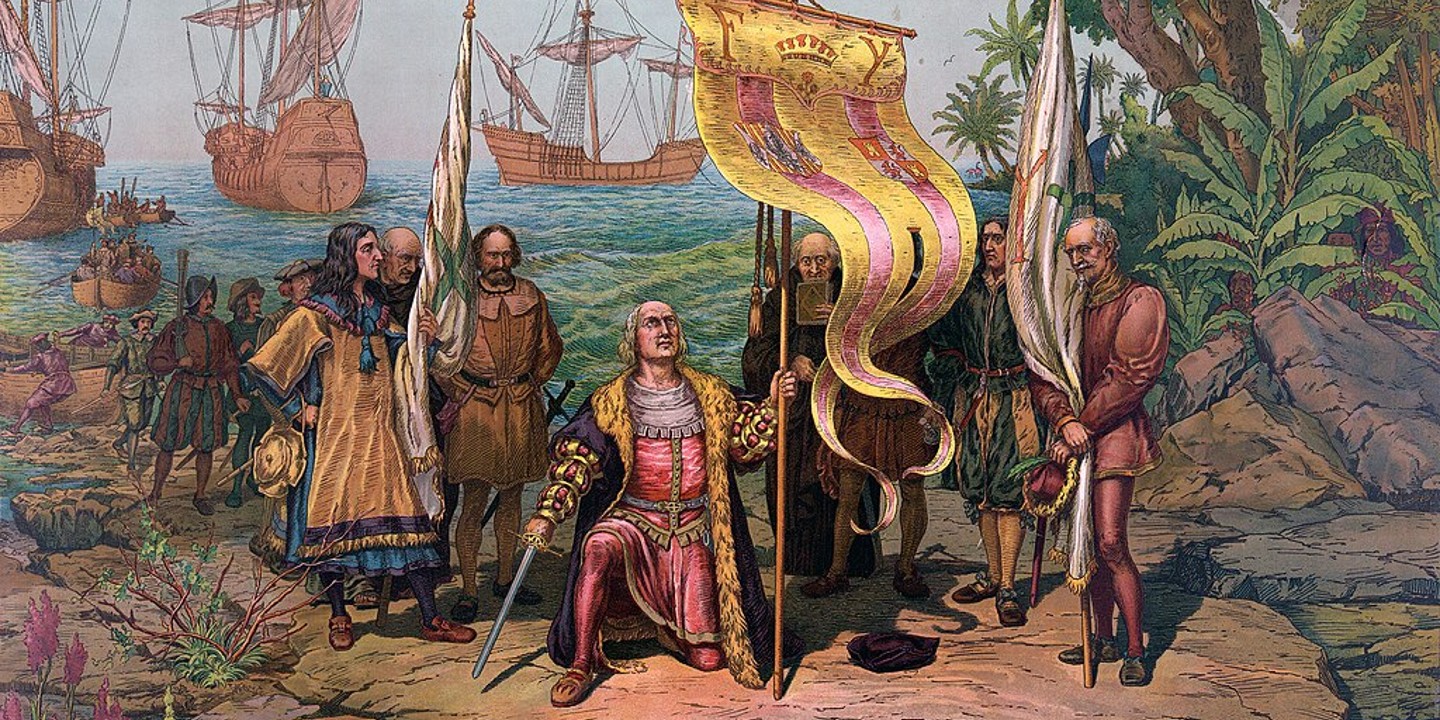Against All Odds
There are some battles we can’t believe ended up the way they did. Despite great odds, the underdogs would take the win. Or perhaps headstrong generals would fumble victories that were practically in their grasp. Either way, here are 20 historical events that left both sides surprised.
 Alphonse de Neuville on Wikimedia
Alphonse de Neuville on Wikimedia
1. The Mongols
The general of Genghis Khan, Subutai, had led a Mongol raid across the Caucasus into Russia and was about to escape when he was surrounded by a large coalition of Cumans, Alans, Bulgars, and Khazars at a narrow mountain pass. The Cumans outnumbered the Mongols 2 to 1, and both sides were starving, but Subutai bribed the Cumans to retreat. The coalition's failure to cooperate or take decisive action made this one they had no business losing. To make matters worse, afterwards, the Mongols caught up with the Cumans who had split into two groups returning home, and recovered their bribes.
 Joseph de La Nézière on Wikimedia
Joseph de La Nézière on Wikimedia
2. The Battle of Pharsalus
The Battle of Pharsalus was an important battle in the transition from the Roman Republic to the Roman Empire. Julius Caesar was outnumbered and had already been defeated in the campaign. However, by hiding infantry behind his cavalry, he caught the better-supplied Pompey's forces by surprise and the enemy were routed. The battle, a rout caused by a failed cavalry attack, led to a dictatorial Rome and the rest is history.
3. Siege of Pelium
During the Siege of Pellium, the army of Alexander the Great was trapped by a fort, the surrounding hills, and an army. Food was running low and there seemed to be no possible attacks. The Macedonians held a display of orderly drills and battle cries, frightening the enemy army. Half the troops fled in terror, providing Alexander with a numerical superiority and an impossible victory.
 Workshop of Jacques-Louis David on Wikimedia
Workshop of Jacques-Louis David on Wikimedia
4. Boudican Revolt
The Battle of Watling Street was a major engagement of the Boudican revolt. Tens of thousands of Celtic Britons, under Boudica, Queen of the Iceni, fought a small but well-trained Roman force led by Gaius Suetonius Paulinus. The Romans corralled the Celts into a narrow valley where their tight formations and disciplined tactics overpowered the less coordinated rebels. With their escape route blocked by their own wagons, the Celts were annihilated and a fight that they should have won became one they should never have lost.
5. Battle of Empel
In the Battle of Empel, 4,000 Spanish troops were trapped on an island by 100 Dutch ships. The water froze overnight, and the Spanish troops were able to march across the ice and set fire to the ships. What was a certain defeat became an unlikely victory the Dutch should not have lost.
 Augusto Ferrer-Dalmau on Wikimedia
Augusto Ferrer-Dalmau on Wikimedia
6. Battle of Maldon
At Maldon, Vikings were attempting to extort tribute from the local populace. Byrhtnoth, the local Earl, refused to pay, and insisted on fighting the Vikings. At a point when they were attempting to parley, the Vikings asked for permission to cross the river and engage in a "fair battle." Byrhtnoth's pride caused him to agree and the Vikings were allowed to cross the river to the advantage they desired. This error in turn led to his end. It was likely that if the Vikings had been denied, they would have retreated, and thus this was a battle the defenders should never have lost.
7. Battle of Dupplin Moor
Dupplin Moor was a battle in which a small English army defeated a much larger Scottish army. The Scots came charging on at the English in wild disorder and were drawn down into a valley. There they were harried on their flanks by English longbowmen and prevented from escaping by the uphill deployment of fresh enemy troops. It was a devastating Scottish defeat that the Scots should never have lost.
 John McLaren Ralston (1849-1883) on Wikimedia
John McLaren Ralston (1849-1883) on Wikimedia
8. Napoleon and the Duke
Napoleon surprised the Duke of Wellington's army and had all but sealed its doom. Unfortunately for Napoleon, it then began to rain very heavily, with large amounts of mud coming up. This meant that Napoleon could not attack. He also was unable to get his artillery to function well, as cannonballs would sink into the mud rather than ricochet and inflict casualties.
9. Battle of Agincourt
The Battle of Agincourt is one of those military actions for which a brief description can suffice: Henry V, with a heavily outnumbered English army, won a dramatic victory over a larger French force using tactical brilliance, longbowmen, and terrain. The English army stood against the French onslaught and then counterattacked with sword and hatchet to kill their way out of a near-certain defeat. The battle's result fatally weakened France, changing the war's dynamic, and allowed Henry to solidify his claim to the French throne; it is a battle the French should never have lost.
 John Gilbert (1817–97) on Wikimedia
John Gilbert (1817–97) on Wikimedia
10. Siege of Eger
In the 1552 Siege of Eger, under 2,000 Hungarian defenders held out for 39 days against an Ottoman army of up to 40,000. The Hungarians withstood repeated assaults despite being outnumbered as much as 17 to 1 and defending a dilapidated castle. The Turks suffered severe losses and withdrew, a battle they shouldn't have lost.
11. Samar
At the Battle off Samar, the Japanese did not realize that they were up against heavily armored cruisers and fleet carriers, and they used armor-piercing rounds. The shells mostly passed through the relatively lightly armored destroyers and escort carriers of "Taffy 3" without doing much damage. If they had switched to high-explosive rounds, they could have sunk Taffy 3 and endangered the escort carrier groups and the critical transport ships delivering troops and supplies for the invasion of the Philippines. This was a battle that they should not have lost.
12. Battle of Hodo
A mere 400 Polish defenders managed to withstand the attacks of up to 70,000 Tatar raiders. One of the most lopsided battles in history, the outnumbered Poles built a fortification, and after six hours of fighting, ran out of ammunition and were reduced to using Tatar arrowheads. The resulting casualties so unnerved the Tatars that they negotiated for surrender; when the Poles refused, the Tatars withdrew. A battle they shouldn't have lost.
 Norbert Radtke (Dramburg) on Wikimedia
Norbert Radtke (Dramburg) on Wikimedia
13. Battle of Brownstown
In the War of 1812, 24 Native Americans ambushed 200 US troops concealed in a wooded area. The Americans were surprised, and after many of them took to flight, their commander ordered a retreat which rapidly degenerated into a rout. The Indians achieved a decisive victory against overwhelming odds.
14. Capture of Belgrade
In World War II, one of the most audacious deceptions was carried out by Fritz Klingenberg who, at the head of a six-man reconnaissance patrol, was sent into the Yugoslav-occupied city of Belgrade, defended by thousands of troops. Posing as a major force by parading prisoners, flying German flags, and threatening air attacks, he tricked the mayor into surrendering on the grounds that a vastly superior force was outside the city. In this way the Germans, in one of the most one-sided bluffs ever, entered Belgrade without a fight, a city they should never have lost.
15. Battle of Lacolle Mills
The British only had 180 men while the Americans had 4,000 with artillery. During the Battle of Lacolle Mills in 1814, a tiny British force under heavy American bombardment stubbornly resisted inside a stone blockhouse. The Americans did not know that the British had almost run out of ammunition. The British, under the command of Lieutenant-Colonel Thomas Pearson, then had some reinforcements arrive to aid them in an all-out bayonet charge, which routed the Americans. It was a battle the Americans should never have lost; the American commander was soon after removed from command.
16. Battle of Kapyong
Two battalions of the British Commonwealth Brigade were overrun by numerically superior Chinese forces of the Chinese Spring Offensive of the Korean War in April 1951. The ratio was as much as 30:1 against. The Canadian 2 PPCLI made a last stand on Hill 677 and refused to be overrun. The battalion was completely surrounded and low on food, ammunition, and water, but it made its stand all night while receiving sporadic artillery support. The determined defense, at one point repelling a Chinese massed assault, allowed for thousands of UN forces to retreat without being surrounded. In the process, the battalion suffered extremely heavy casualties and killed a much higher ratio of Chinese.
 Hobson, Phillip Oliver on Wikimedia
Hobson, Phillip Oliver on Wikimedia
17. Battle of Longewala
In the Indo-Pakistani War of 1971, 2,000 to 3,000 Pakistani soldiers with tanks and air support attacked 120 Indian soldiers. Indian forces used false minefields and barbed wire to channel the larger force into unfavorable terrain and cut off their numerical advantage. The Pakistani advance was stopped and the attack was called off after Indian reinforcements arrived, with the Pakistani force incurring heavy casualties while the Indians suffered very few losses.
 Jupiterthescholar on Wikimedia
Jupiterthescholar on Wikimedia
18. Battle of Gate Pa
In 1864, during the New Zealand land wars, a British force of 1,700 men attacked a mere 200 Māori defenders at the Battle of Gate Pā. The Māori managed to repulse the British attack with the use of ruses and ambushes, inflicting severe casualties on the British. This was a battle the British could never have been expected to lose.
19. Operation Eland
In the Rhodesian Bush War, 84 scouts in four armored cars dressed as civilians, and overran and destroyed a ZANU guerrilla base. This was as a reprisal for an earlier ZANLA attack on a Rhodesian base. Impressively, the entire operation was carried out with no casualties.
20. Battle of Rorke’s Drift
In 1879, at the Battle of Rorke's Drift, slightly more than 150 British and colonial soldiers defended a farmhouse against an intense attack by 3,000 to 4,000 Zulu warriors. After a series of repulsed attacks, the vastly outnumbered force held firm, suffering 17 fatalities and inflicting severe casualties in what has become an iconic Zulu victory in a battle the Zulus should never have won.
KEEP ON READING

The 20 Most Recognized Historical Figures Of All Time
The Biggest Names In History. Although the Earth has been…
By Cathy Liu Oct 4, 2024
10 of the Shortest Wars in History & 10 of…
Wars: Longest and Shortest. Throughout history, wars have varied dramatically…
By Emilie Richardson-Dupuis Oct 7, 2024
10 Fascinating Facts About Ancient Greece You Can Appreciate &…
Once Upon A Time Lived Some Ancient Weirdos.... Greece is…
By Megan Wickens Oct 7, 2024
20 Lesser-Known Facts About Christopher Columbus You Don't Learn In…
In 1492, He Sailed The Ocean Blue. Christopher Columbus is…
By Emilie Richardson-Dupuis Oct 9, 2024
20 Historical Landmarks That Have The Craziest Conspiracy Theories
Unsolved Mysteries Of Ancient Places . When there's not enough evidence…
By Megan Wickens Oct 9, 2024
The 20 Craziest Inventions & Discoveries Made During Ancient Times
Crazy Ancient Inventions . While we're busy making big advancements in…
By Cathy Liu Oct 9, 2024












